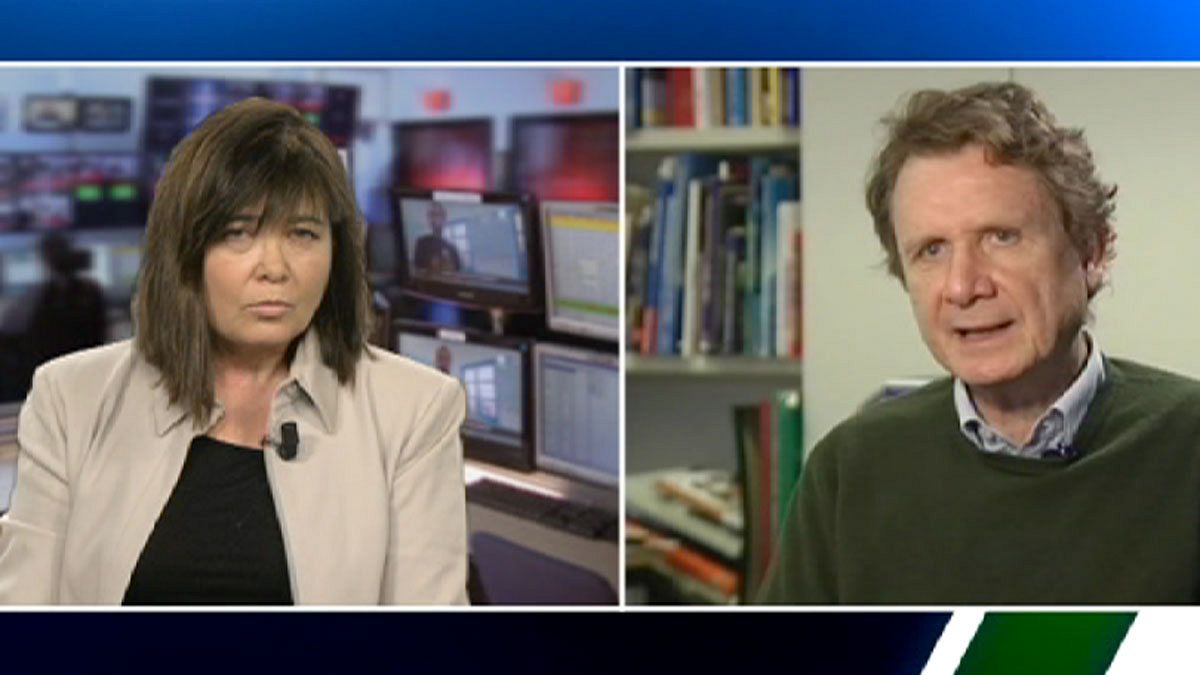Fallout from the Feb. 24-25 Italian elections – background followed by an interview with a political specialist in Rome
Many Italians cast their votes for members of parliament guided by disappointment or desperation, disgusted by austerity and a whole system they felt had let them down.
Government by demagogue had been discredited. In November 2011, crowds celebrated the ouster of centre-right Prime Minister Silvio Berlusconi. He swept off in a limo with his country in deep recession and the international markets pricing it into a crisis.
But one year later he told Italians he was returning to save them from the technocratic reforms which had won back some stability. He promised to abolish hated taxes, to amnesty tax cheats and to create jobs. A lot of Italy’s electorate ate his populist programme up.
The centre-left were determined to prevail.
Their leader Pierluigi Bersani insisted: ‘‘Berlusconi will not win. He will lose this election.’‘
They won more votes for national representation in the lower house but control of the Senate eluded them, tying their hands and complicating formation of a government. Bersani’s programme was considered the most rational, given to supporting employment while committing to responsible behaviour with the national budget. But the centre-left had a new phenomenon to reckon with: a former comedian.
Beppe Grillo became the star of the election, stealing fire from the traditional parties. Here was a new populist, not a candidate himself but the front man for those of his 5-Star Movement that challenged Italy’s established political order, winning massively. Grillo promised to reverse austerity, hold a referendum on the euro and to purge Italy of corruption.
Incumbent Prime Minister Mario Monti, the economist-technocrat-turned-politician had replaced Berlusconi 15 months earlier. He had administered bitter economic and social medicine and pulled Italy back from the brink of debt disaster, though it remained in recession. He received thanks from only one in ten or so voters. European partners had hoped he would do better. Italians bogged down by austerity policies rejected the man who portrayed himself as a realist.
As the political dust swirled, we asked Lucio Caracciolo what he thought. He is one of Italy’s foremost experts in geopolitics, presenting seminars in strategic studies at various universities in Italy. He is the founder of the specialist revue LIMES and its director.
Rita Del Prete, euronews: “Lucio Caracciolo, analysts outside Italy are calling the success of Beppe Grillo’s 5-Star Movement a victory of anti-politics, or populism. What will Grillo do with Italy and Italy with Grillo?”
Lucio Caracciolo: “I don’t know about ‘anti-politics’ but Grillo is definitely a politician who’s staying away from Parliament. But he’s the leader of the main Italian party, even the only Italian political party, since the others have shown they are more or less abstract constructions. I take Mr Grillo seriously, and I’d also take seriously the possibility that new government forces can be expressed within this movement in the not so distant future.”
euronews: “Could the presence, however symbolic, of Mario Monti in a coalition reassure what we might call ‘the Europe of austerity’?”
Caracciolo: “No, firstly because Bersani and Monti will not join the majority, and secondly because Monti lost a lot of credibility by being the head of a technocratic government, on top of being a Senator for life, and yet standing for election as if he had been any old minor democratic chief. So I don’t think Monti has any sort of a future in Italy, or, as a result, in Europe.”
euronews: “What do you think are the unavoidable disputes that the next government will have to tackle at an international level?”
Caracciolo: “First a government has to be put together, since you can’t have a programme without a government. Then it will have to decide on economic policy, especially fiscal policy. Thirdly, it will have to sell its decisions to an extremely disoriented public. These are very difficult things to do, but the Italians have a fantastic imagination.”
euronews: “In the near future, having managed to be sort of credible, how influential could Italy be internationally in the next few years?”
Caracciolo: “Italy is going to be less influential in the next few years. It has been one of the world’s most important countries – since today it has the potential to destabilise the whole system. In the future, either we stay out of the system or we get back in line. In either case, we’re going to be far less influential than now.”
euronews: “Foreign policy was almost absent from campaigning in these elections. Does Italy still have a foreign policy?”
Caracciolo: “I’d say no.”
euronews: “What to do about it?”
Caracciolo: “We’re navigating without a compass. There’s obviously no strategy, no programme, so it’s just going to be day by day. The first thing it’s going to take is a bit of imagination to put a government together, which will probably be a minority government, since no one has a majority. I think a fundamentally technical government supported by the main parties could change the electoral law and create a new kind of voting. But that’s not yet defined, that project. The alternative would be to hold another election under the present law, which would probably mean voting every year for the next ten years.”


